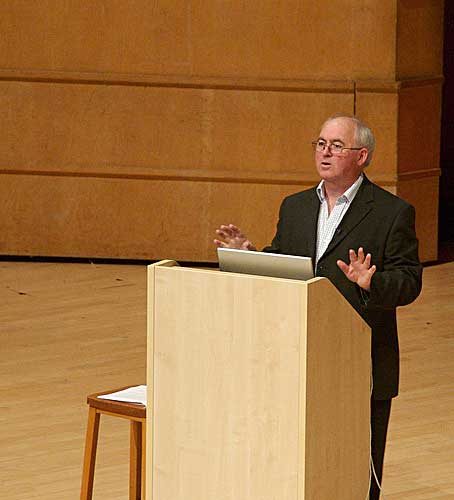I heard that Jeeves, er Stephen Fry, had a blog and tried to reach it the other day, only to find that its hosting server had been blown over by the demand. I forgot to go back until I read Martin Weller’s comments on it.
So I tried again and was transfixed by the first post, which is a startlingly erudite essay on a syndrome familiar to all geeks — the tendency to believe that sometime, somewhere someone will invent the Gadget that will help us sort out our lives. Stephen Fry is rich enough to buy anything the moment it appears on the market, and by God he has.
“I have”, he writes,
“over the past twenty years been passionately addicted to all manner of digital devices, Mac-friendly or not; I have gorged myself on electronic gismos, computer accessories, toys, gadgets and what-have-yous of all descriptions, but most especially what are now known as SmartPhones. PDAs, Wireless PIMs, call them what you will. My motto is:
I have never seen a SmartPhone I haven’t bought.”
He’s VERY knowledgeable about this stuff. In fact he reminds me of Douglas Adams, who was as excited about the Macintosh as I was when it appeared. I remember once visiting him in his house in — I think — Islington and being overcome with envy after being taken round a lovely airy attic room stuffed full of Apple gear. Stephen Fry’s place in Norfolk must be much the same.

